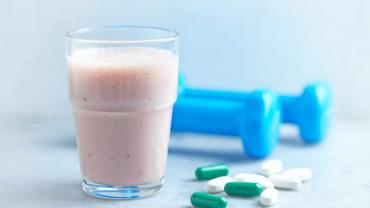
Non-alcoholic fatty liver disease (NAFLD) is a broad term, encompassing a range of liver conditions that are not associated with alcohol consumption. It is characterized by an excess accumulation of fat in the liver.
A few studies have shown a beneficial effects of carnitine supplementation in liver diseases; however, these results have been inconsistent. This may be due to study design, dosage, or form of carnitine administered.
According to a review published last week in Complementary Therapies in Medicine, researchers examined the effects of carnitine supplementation on clinical characteristics of NAFLD. This review included a total of 5 randomized placebo-controlled studies which included 334 patients. It investigated the effects of carnitine supplementation on liver function, body mass index (BMI), lipid profile, body weight, and HOMA-IR. These studies included a sample size between 48 and 80 individuals supplementing with a dosage of carnitine between 300 - 2000 mg per day over a 3 to 6-month period.
The results showed that carnitine supplementation significantly decreased the HOMA-IR, AST, ALT, and triglyceride levels. On the other hand, it did not have an effect on BMI, body weight, HDL, LDL, or total cholesterol levels. Previous research has demonstrated carnitine supplementation provides a protective effect by preventing lipid peroxidation and can affect liver function by decreasing insulin resistance.
Individuals with NAFLD are in a chronic disease state and have increased nutrient demands that exceed what could be obtained from the diet alone and, therefore, dietary supplements should be considered to help prevent the progression as well as support healthy liver function. Additional nutrients to consider include delta and gamma tocotrienols, phosphatidylcholine, fiber or resistant starch, n-acetylcysteine, fish oil, and probiotics.
By Michael Jurgelewicz, DC, DACBN, DCBCN, CNS